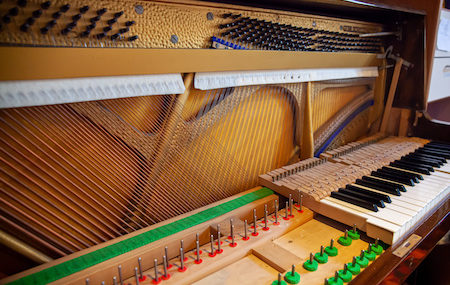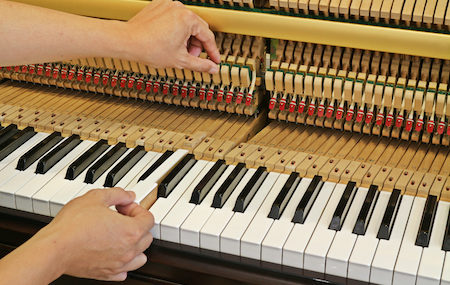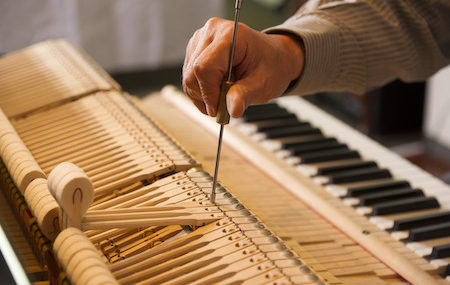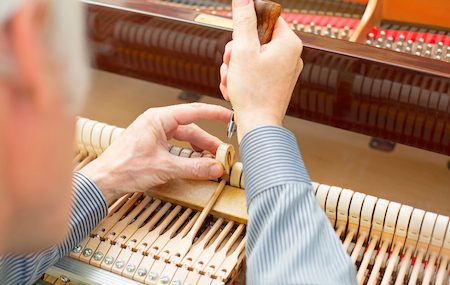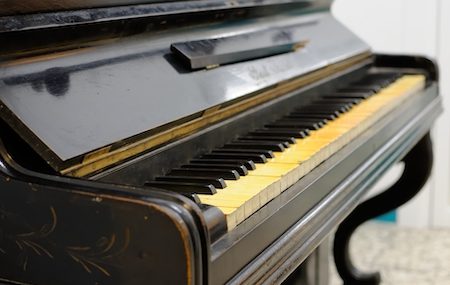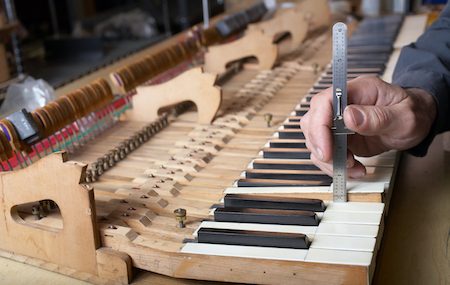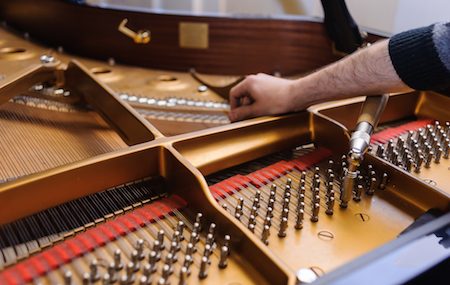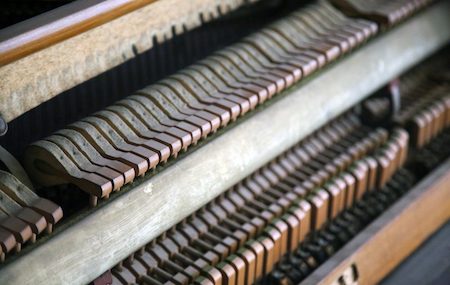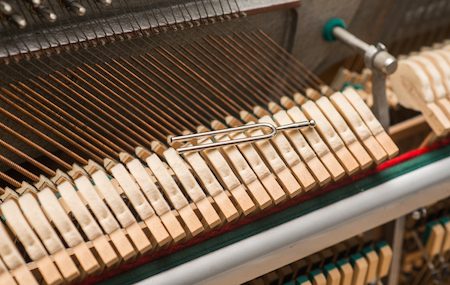In the world of pianos, where timeless melodies and rich harmonies come to life, there’s an art to selecting and restoring instruments that goes beyond mere craftsmanship. When you find a piano worthy of restoration, you find one ready to take on new life. It’s had a rich history, and it’s ready for more.
But what does that mean? What does that look like? How do you know if you have a piano in need of restoration?
The Art of Selection
Every piano that enters our restoration process undergoes rigorous selection criteria. Whether it’s a classic grand piano or an upright with a history, we choose instruments with inherent musicality and the potential for restoration. Our team of experts carefully evaluates the condition of each piano, considering factors such as the original craftsmanship, the quality of materials used, and the unique characteristics that make each instrument special.
Skilled Restoration Techniques
Once a piano is selected, the restoration journey begins. Our skilled artisans and technicians employ a combination of traditional and modern techniques to restore the instrument to its former glory. From repairing and replacing worn-out parts to refinishing the exterior, every step is executed with precision and a deep understanding of the instrument’s historical significance.
Preserving Heritage
Restoring a piano isn’t just about fixing mechanical components; it’s about preserving the instrument’s heritage. Our team delves into the history of each piano, researching its origin, previous owners, and any noteworthy performances it may have been a part of. This attention to detail allows us to restore the piano and revive its unique story, making it a valuable piece of musical history for both enthusiasts and owners.
Quality Craftsmanship
Masterful craftsmanship is at the core of our restoration process. Our team of highly skilled artisans takes pride in their ability to revive the intricate details of vintage pianos. From hand-carving intricate woodwork to meticulously aligning hammers and strings, every element is treated with the utmost care. The goal is not just to make the piano playable but to elevate it to a level where it becomes a work of art. One you’re proud to showcase in your home, and possibly create an heirloom for you to hand down to future generations.
A Symphony of Sound
Beyond the visual aesthetics, the true magic of our restored piano collection lies in the symphony of sound that each instrument produces. Our technicians painstakingly regulate and voice each piano to ensure a rich, nuanced tonal quality. The end result is an instrument that delivers a captivating and inspiring musical experience.
Unveiling Masterpieces
Whether you are a seasoned pianist, a collector with an appreciation for history, or a music lover seeking a unique piece for your home, our collection of pianos offers something extraordinary. Yes, you can purchase a starter piano to grow your appreciation of playing. When you’re ready, used pianos may offer a chance to invest in something extraordinary. A masterpiece you’ll be proud to display for years to come.
Are you in the market for a new-to-you piano? Do you have a vintage piano in need of restoration? Sometimes, history makes the best investment.
How can we help you find the piano of your dreams?
